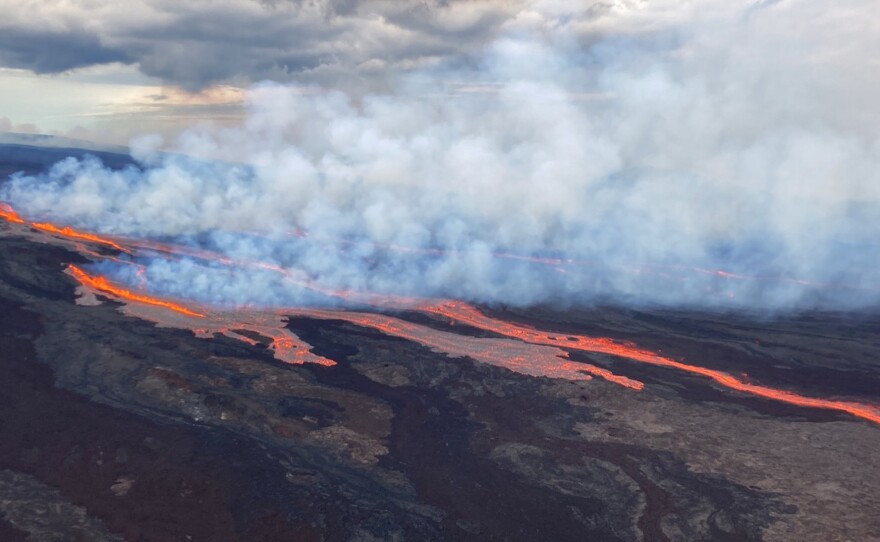A volcanic eruption in Hawaii has interrupted a key long-running scientific record of airborne carbon dioxide.
Lava flows from one of the world’s largest volcanoes, Mauna Loa, have cut off access to a federal research observatory that’s recorded carbon dioxide levels in the air for more than 60 years.
Those measurements have tracked steadily rising CO2 levels since 1958, a scientific record widely known as the Keeling Curve. The data serve as a long running record of global warming.
That record was started by the Scripps Institution of Oceanography researcher Charles Keeling, who died in 2005.
The project is now run by his son Ralph Keeling, who is in charge of the Scripps CO2 program.
The station, which is located at a relatively high elevation, is not expected to be operating any time soon.
That is because lava flows have cut the road and power lines that the scientific station relies on.
“They still have to let lava cool,” said Keeling. “Build a new road over it. They have to put new power poles over it. That’s months in any case.”
Keeling is looking for a nearby location that’s suitable to take measurements until the observatory is back online.
Any data collected at another location would become part of the long-running record, but it would have an asterisk to note the change.
He said it is possible he may set up a station near the area, but there are not a lot of choices.
“There’s Mauna Kea, there’s Mauna Loa, some other volcanoes on Maui that are getting up pretty high, but just those volcanoes are the only things sticking up in the atmosphere in such a remote spot,” Keeling said. “It’s really an amazing location and really unique and valuable for atmospheric work.”
A temporary site would have to be upwind of the erupting volcano because volcanoes can be a major source of carbon dioxide emissions.
Another eruption of the volcano in 1984 kept samples from being taken for several months.
There were also sustained periods without measurements in the early 1960’s when federal funding cuts shut down the project for a few months.








